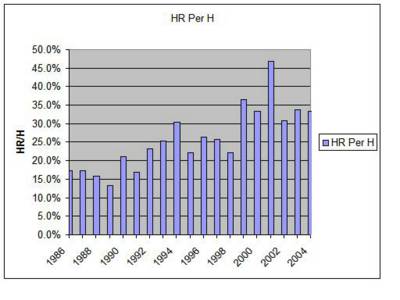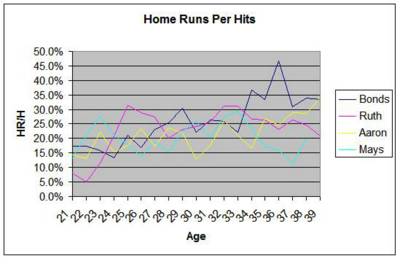More Favorite Things
[Dexys, if you're going to write something this long in a comment, it should be a post]
From Dexys....
This one would be near the top of my list, DM: Strategy and the time to discuss it.
While I think that baseball is indeed too long and needs to be sped up a bit (time between innings, between pitches, throws to first, etc.), there is something special about having the time to actually discuss WHAT should be done in given situations.
Baseball's strategy is so multi-layered, and with the inability to bring players back in, so different from other sports, that it is so simple and complex at the same time. Just about anyone can understand even the most intricate parts of baseball strategy and discuss them (even if they might not think of them when the time comes). The delay between pitches, pitchers, innings, etc. gives you an opportunity to have a discussion that I don't feel you get from other sports.
This makes me think of some other favorite things of mine:
A connected one: The ability to have real conversations while still paying attention to the game. Something about being outdoors on a warm evening just shooting the breeze with a friend for a few (formerly 2 1/2, now 4) hours gives baseball part of its feeling; makes you feel part of the history and gives you a real feeling for why there have always been so many games in a season.
Scoring a game: I rarely do it anymore, but come on, who doesn't get a sense of true nostalgia scoring a game? My daughter is 1 and I already look forward to teaching her how to score a game. Again, no other game makes you feel a part of its history like baseball.
See something new or special every game: In actuality, every sport has this, but I never seem to go to any football game thinking "I hope the QB doesn't miss a single pass today." If I go to 81 Nationals games this year, I will spend the first inning of every game thinking "I hope I see a perfect game. I hope I see 20Ks." Mid-way through the game..."can this guy get the cycle?" etc.
"Buck-says": A DM special. You can do this in any sport, but it really is so much fun at baseball games (again a function of the time between action). If you have never done it, here is how it works. Before any pitch, inning, batter, whatever, just announce to your cohorts at the game: "buck-says ___" such as "buck-says this guy either strikes out or hits into a double play"; "buck-says he gets out of this inning without letting up a run"; "buck-says he swings at the first pitch" etc. etc. ETC. Whoever takes you up on the offer (we usually do the first person to take the bet, but you can let everyone in on your buck-says if you want), you have a bet with. Best buck-says inning in history: DM and I had an inning where a guy stole home and another guy tagged up from third to score to be called out for leaving too early on the appeal--imagine one guy begrudgingly hands over a dollar only to look like he just lost his virginity 30 seconds later when an appeal overrules the run (and the other guy looks like said virginity was lost to his mom).






